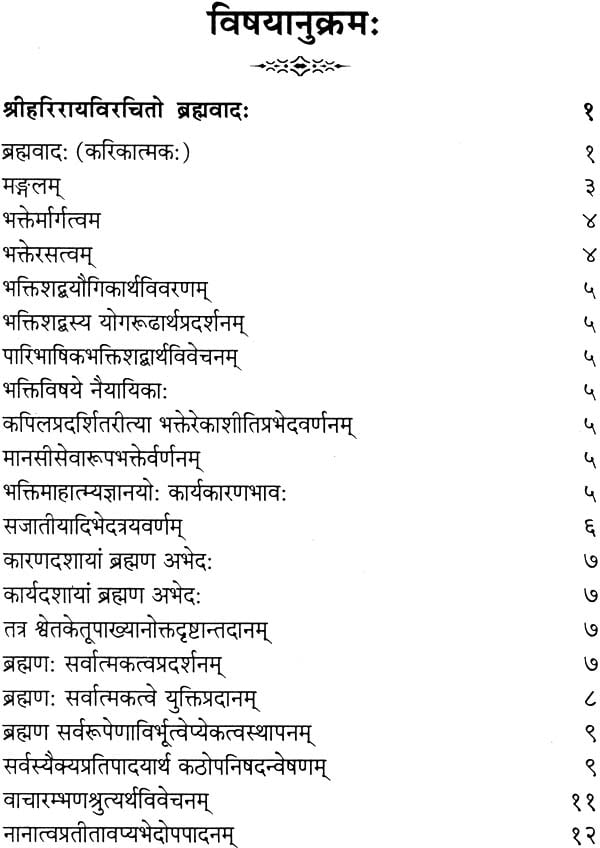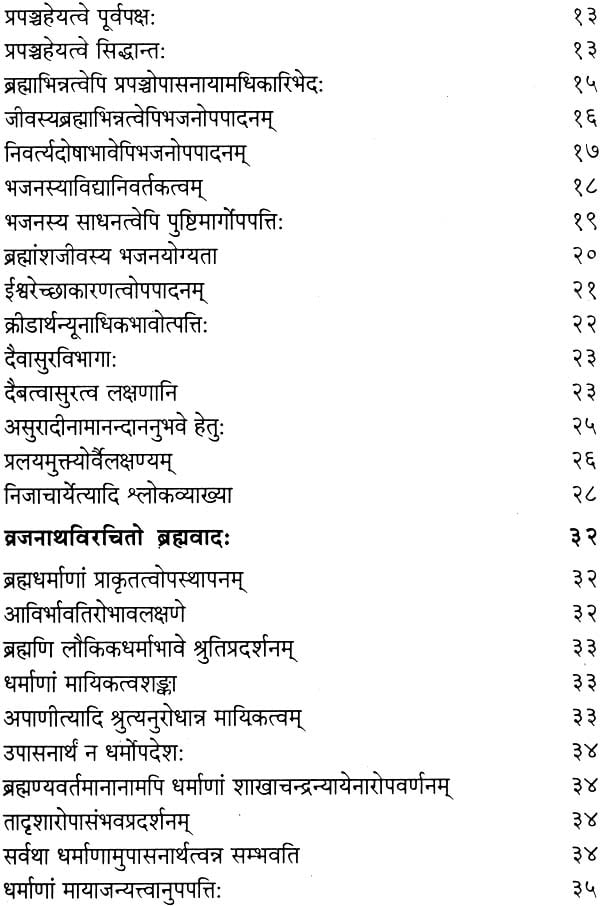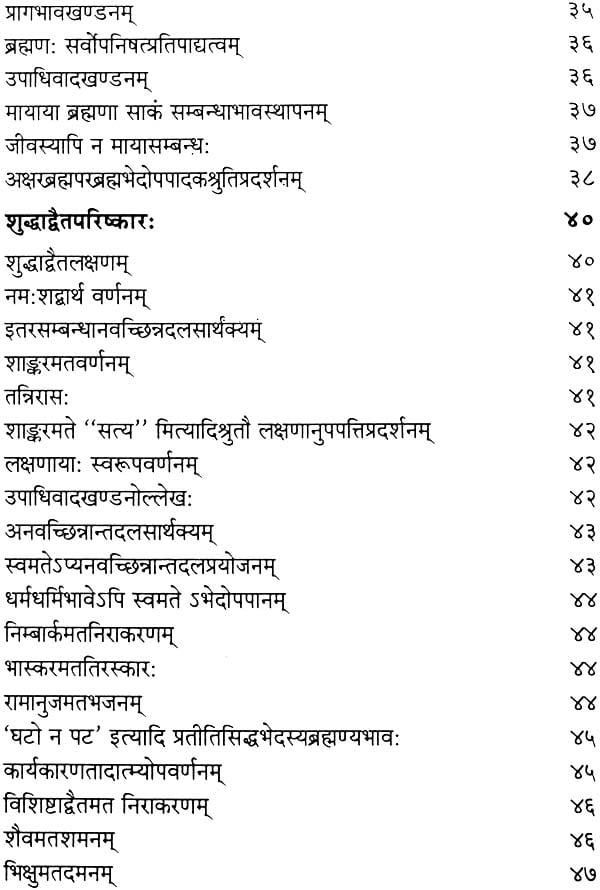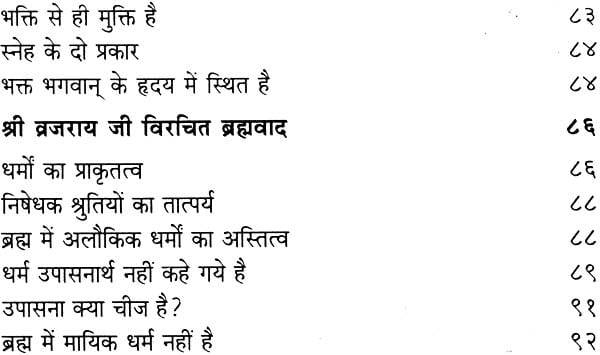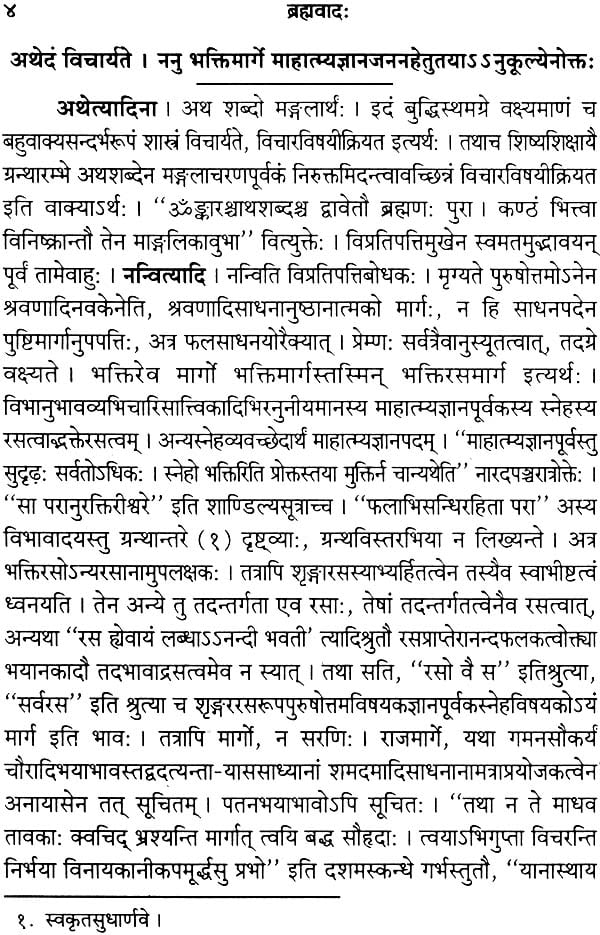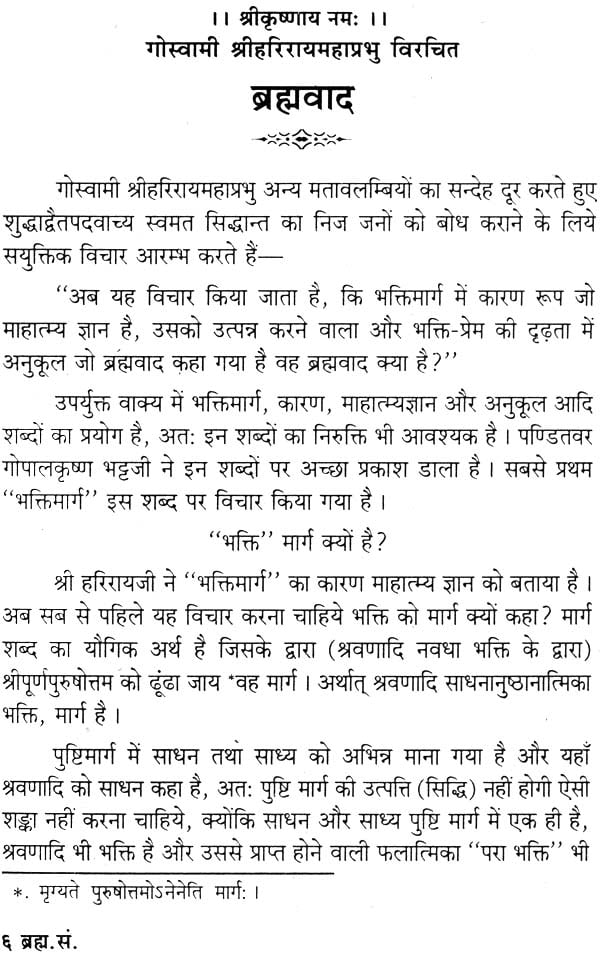
ब्रह्मवादसंग्रह: Brahmavada Samgraha (Philosophy of Sri Vallabhacharya)
Book Specification
| Item Code: | NZF597 |
| Author: | श्री वल्लभाचार्य (Shri Vallabhacharya) |
| Publisher: | Chaukhambha Prakashan, Varanasi |
| Language: | Sanskrit and Hindi |
| Edition: | 2009 |
| Pages: | 152 |
| Cover: | Paperback |
| Other Details | 7.0 inch X 5.0 inch |
| Weight | 120 gm |
Book Description
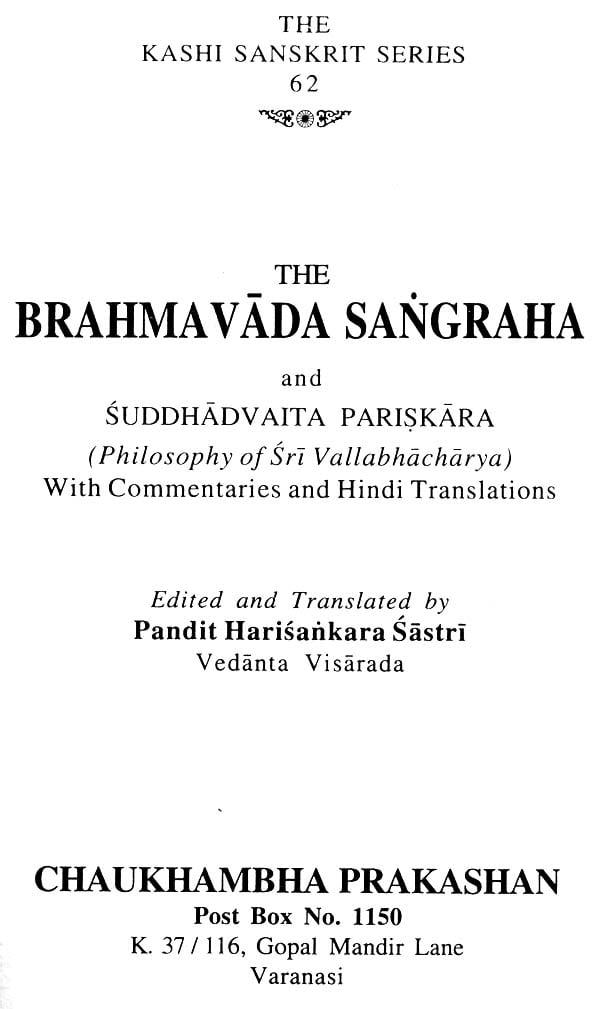
One of the many systems of religious through in Indian that claim to be based on the authority of the Upanishads, is that of Vallabhacharya, generally known as the Shuddhadvaita Vedanta, or Shuddha-Brahma-Vada, in the religio philosophical circles, and as Pushtimarga, as a sect of religion. Unfortunately, it is not so much known to a general reader as the Advaita Vedanta of Shankaracharya, which owing to the vast literature published on it in Sanskrit, English and Indian Vernaculars by its admirers who are quite large in number all over the world, is enjoying so much popularity that it is usually called the Vedanta Philosophy. The Upanishads, which all the systems Vedantic. Thought (Vedanta meaning here the Upanishads), claim to interpret, present such a variety and multiplicity of ideas, that to incorporate all of them in a coherent and system of philosophy is no less difficult than to interpret the actual world in comprehensive, coherent and systematic way. As in scyual philosophizing on the nature of the world, there is a danger of some aspects of the world to be neglected and others to be over emphasized by philosophers impatient to give a finished system, so also has been the case with the interpreters of the Upanishads, who, unfortunately for philosophical genius in India, directed their keep and bright intellect to the ancient record’s creative thought, instead of applying it to the actual world and life from which the sages of the Upanishads got their first-hand information. For an impartial investigator into the doctrines of the Upanishads, if he is to benefit by the attempts of the medieval thinkers, it is advisible to known all the interpretations offered by the various schools. The three books collected in this volume are welcome as giving us the doctrines of one of the five well known school of Upanishadic thought, the school of Vallabha on which there is very much scarcity of published literature.
